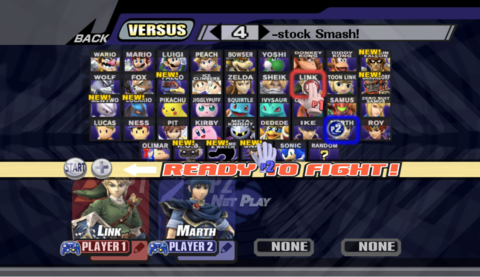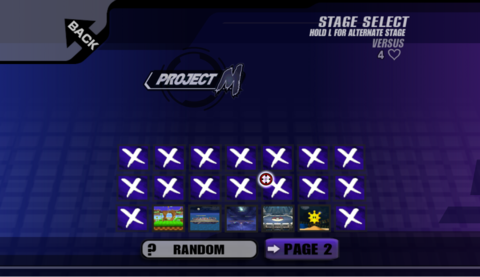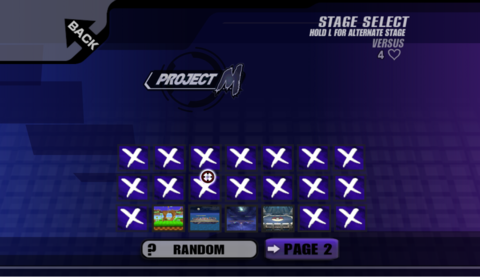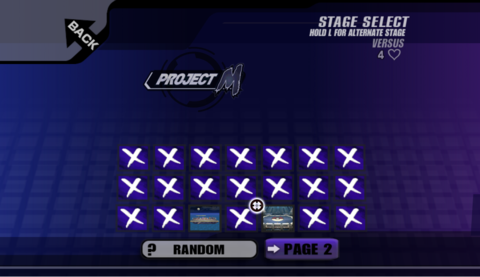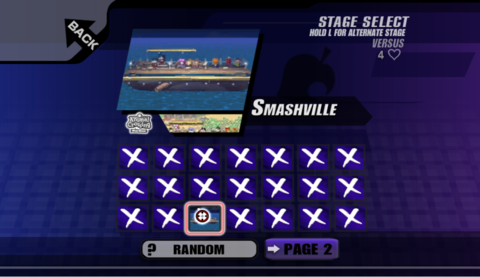Stage striking
Stage striking is a common procedure seen in most tournaments of the various games of the Super Smash Bros. series, used to fairly select a stage to be played on for the first match of a set. Generally speaking, stage striking involves starting with a list of neutral stages, then having all players in the match take turns removing one or more stages from the list until only one stage is left.
Tournaments most commonly feature five neutral stages. Stage striking begins with a random game (such as a coin flip or rock-paper-scissors) to decide who strikes first. The winner of the random game strikes one stage of their choice. After this, the loser of the random game strikes two stages, then the winner strikes one last stage. The one remaining stage is used as the first stage for the set.
If a tournament ruleset features six neutral stages, then at the last step the winner of the random game strikes two stages to obtain the last remaining stage. If a ruleset features seven or more neutral stages, then after five stages have been struck, the loser of the random game and the winner continue to alternate striking one stage until only one stage is left. If a ruleset features four or fewer neutral stages, then the above procedure simply stops once one stage is left.
Stage striking is only performed for the first match of a set. For successive matches, the loser of the previous match is allowed to select any stage among the list of counterpick stages as well as the neutral stages. Variations of Dave's Stupid Rule may limit which stages can be selected in this case. Stage striking can also be skipped by invoking the Gentleman's Clause, provided the tournament has such a rule.
As only one stage, Dream Land, is legal in current Smash 64 tournaments, stage striking is no longer a common practice at Smash 64 tournaments, though it was previously featured in older, less restrictive rulesets for the game.
